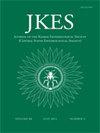草原犬群落和Sagebrush草原未扰动地点的蝗虫物种组成差异
IF 0.3
4区 农林科学
Q4 ENTOMOLOGY
引用次数: 0
摘要
摘要:在草地和灌丛生态系统中,蚱蜢是植物生物量的主要消耗者。虽然蚱蜢通常被认为是多面手,但它们有不同的栖息地偏好和与草原上其他消费者的互动。关于草原土拨鼠群落和植被差异如何影响蚱蜢的丰度和组成,存在相互矛盾的说法。我们在怀俄明州东部的草原/灌木生态系统中对蚱蜢群落、植物群落和草原犬鼠进行了景观尺度的调查。在研究景观中,刺棘草科(Melanoplinae)与低灌木覆盖和C3多年生禾本科植物低覆盖区相关,带翅草科(Oedipodinae)与低C4草覆盖和低草覆盖区相关,斜面草科(Gomphocerinae)与低植被高度区相关。草原土拨鼠,大概是因为它们对植被的影响,对不同群体的蚱蜢有不同的影响。Melanoplinae蚱蜢、怀俄明州牙签蚱蜢(Paropomala wyomingensis Thomas)和具有早季物候的蚱蜢与草原土拨鼠群体有关。然而,由于一些种类的蚱蜢与土拨鼠呈正相关,而另一些物种与土拨鼠呈负相关,因此土拨鼠对蚱蜢总生物量的净影响是中性的。因此,为了确定蝗虫在草原生态系统中的作用,确定蝗虫物种在消耗植物生物量和作为脊椎动物食物方面是否存在功能等同将是重要的。本文章由计算机程序翻译,如有差异,请以英文原文为准。
Grasshopper Species Composition Differs Between Prairie Dog Colonies and Undisturbed Sites in a Sagebrush Grassland
Abstract: Grasshoppers are major consumers of plant biomass in grassland and shrubland ecosystems. While often considered generalists, grasshopper species have differing habitat preferences and interactions with other consumers in grasslands. There are conflicting accounts of how prairie dog colonies and differences in vegetation impact grasshopper abundance and composition. We conducted a landscape-scale survey of grasshopper communities, plant communities, and prairie dogs in a grassland/shrubland ecosystem in eastern Wyoming. Over the study landscape, spurthroat grasshoppers (Melanoplinae) were associated with lower sagebrush cover and lower cover of C3 perennial graminoids, bandwing grasshoppers (Oedipodinae) were associated with low-lying areas with a high cover of C4 grasses and a low cover of cheatgrass, and slantface grasshoppers (Gomphocerinae) were associated with low vegetation height. Prairie dogs, presumably because of their effects on vegetation, had different impacts on different groups of grasshoppers. Melanoplinae grasshoppers, the Wyoming toothpick grasshopper (Paropomala wyomingensis Thomas), and grasshoppers with early-season phenology were associated with prairie dog colonies. However, because some species of grasshoppers were positively and others negatively associated with prairie dogs, the net effect of prairie dogs on total grasshopper biomass was neutral. Thus, to determine the role of grasshoppers in prairie ecosystems, it will be important to determine whether there is functional equivalence of grasshopper species in consuming plant biomass and as food for vertebrates.
求助全文
通过发布文献求助,成功后即可免费获取论文全文。
去求助
来源期刊
CiteScore
1.60
自引率
0.00%
发文量
12
审稿时长
>12 weeks
期刊介绍:
The Journal of the Kansas Entomological Society is a publication of the Kansas (Central States) Entomological Society, publishes research on all aspects of the sciences of entomology, and has world-wide authorship and readership.

 求助内容:
求助内容: 应助结果提醒方式:
应助结果提醒方式:


